Awkwafina Never Thought She'd End Up Here
By shifting seamlessly from comic genius to dramatic force, social media to silver screen, she represents a next-level kind of stardom.
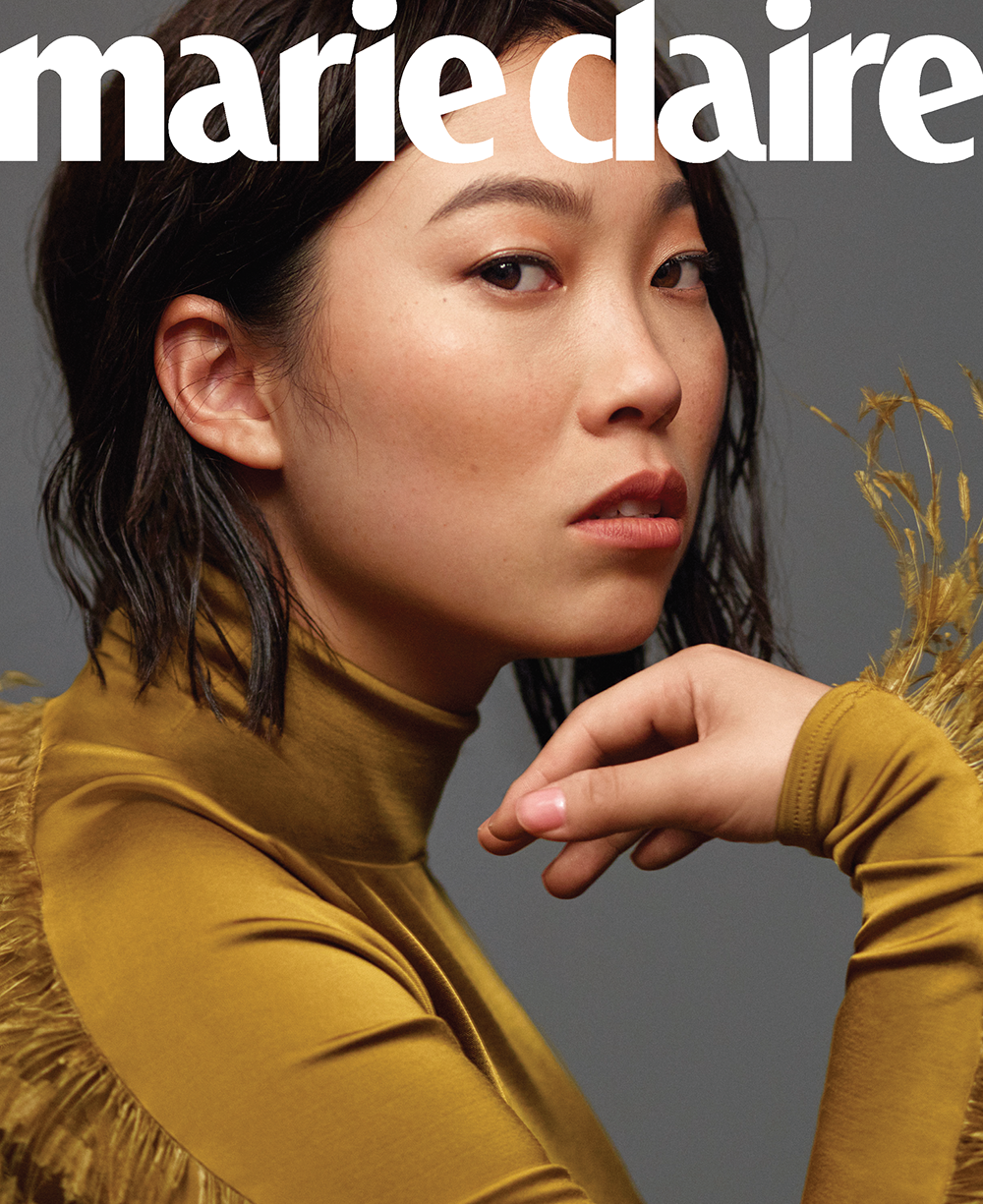
Proenza Schouler top.
Asked what always makes her laugh, Nora Lum, better known as Awkwafina, tells a story about fornicating squirrels. “They were aggressively lovemaking on top of a garbage can. I went to throw out a soda, and both of them turned, looked me in the eye, and just kept going at it. I felt so disrespected.” Awkwafina busts up anew, admits she thinks about those squirrels all the time, and then, barely taking a breath, dives into another recent memory. “I was at my aunt’s house in North Carolina, outside, petting the neighborhood cat, Sushi. I might have been toking on something. Anyway, I looked down, and it was an opossum.” She chuckles again, long and hard, then asks, “Do you have a cat?”
Awkwafina, 31, is a wholly original five-foot-two-inch ball of wax. Part raunchy teenage boy, part fierce feminist, the actress-rapper is kind and irreverent and respectful of tradition and incapable of not creating something new, subversive, and sunny. Above all, she is a tidal wave of cool, largely because “cool” is the last thing she views herself as. “I’ll always be insecure,” she says candidly. “I’ll always critique myself, I’ll always want to evolve, and, yeah, I’ll always hate myself a little bit.”
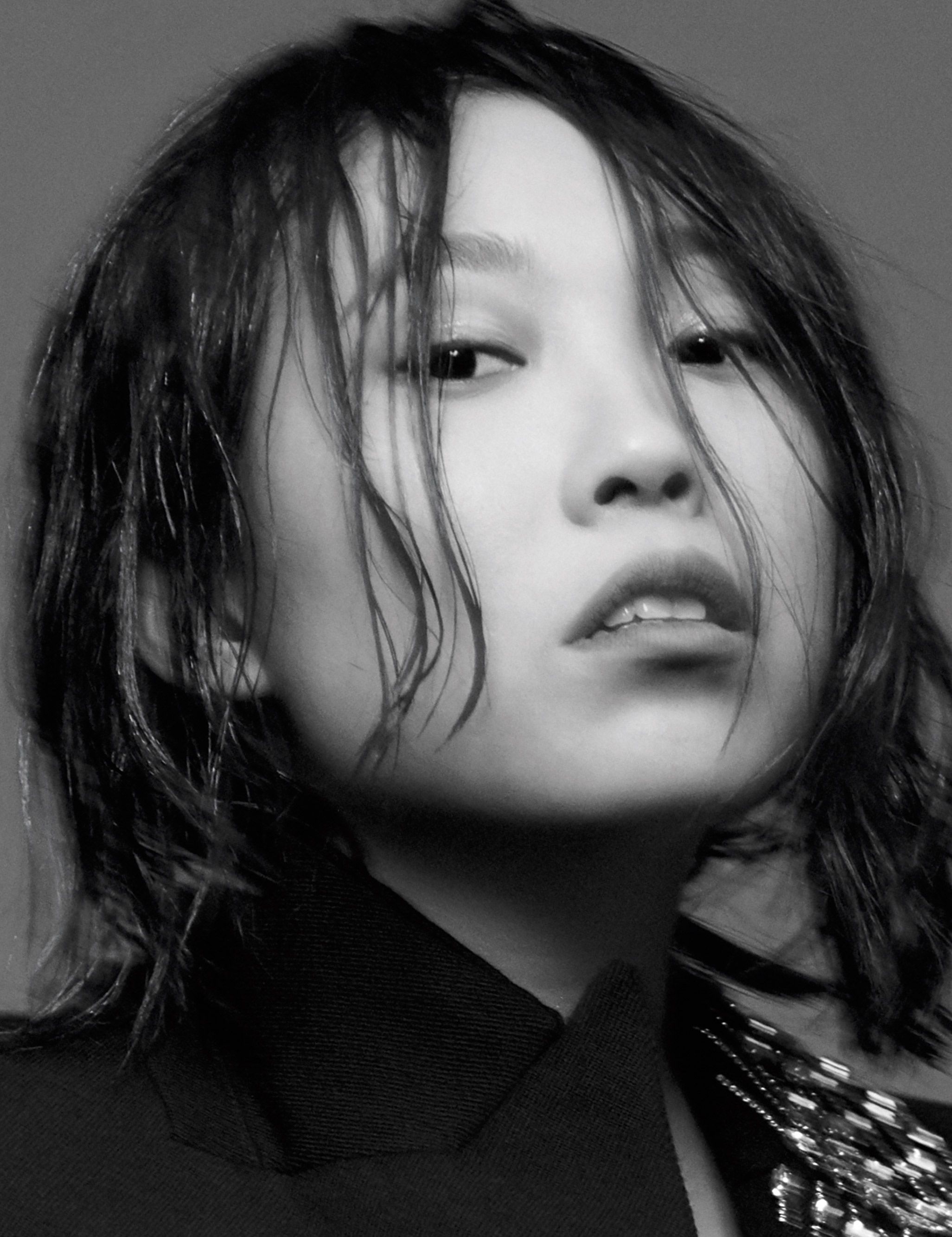
Givenchy jacket.
A hip-kid favorite thanks to her ingenious YouTube rap videos (the most well-known, 2012’s “My Vag,” instantly became a viral give-zero-fucks, body-positive anthem for young women everywhere), Awkwafina exploded onto the wider cultural landscape in 2018, after harnessing her idiosyncratic comedic timing and warm stoner magnetism to steal the show in Crazy Rich Asians. It was a star turn preceded by a sly performance as a street hustler in Ocean’s 8, with the newbie more than holding her own in the seasoned cast.
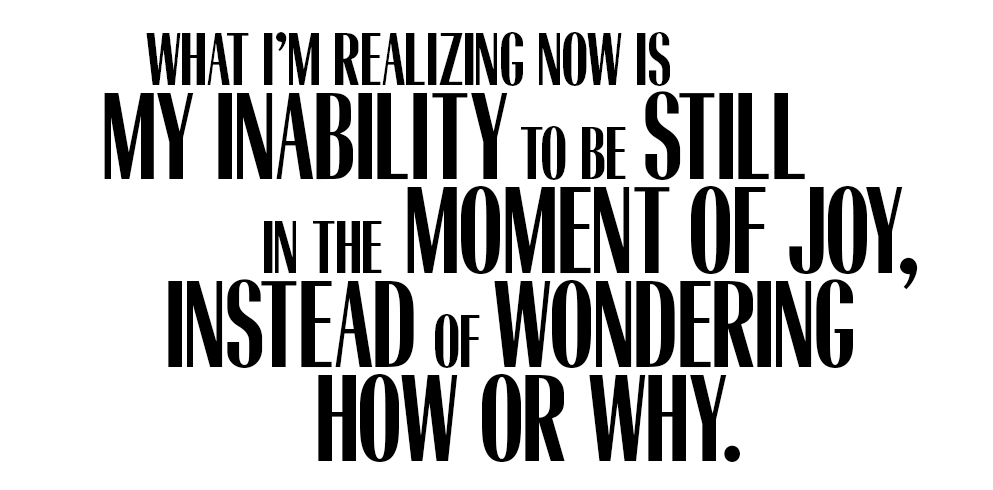
Now, Awkwafina’s options appear limitless. She’s already seduced critics as the emotionally riven lead in The Farewell, a profound family drama about grief, connection, and the burdens we carry. She stars in November’s thriller Paradise Hills and December’s Jumanji: The Next Level opposite Dwayne Johnson, and she’s set for roles in the screen version of Broadway’s The Prom, with Meryl Streep, and the live-action Little Mermaid. Also on Awkwafina’s overflowing plate is her as-yet-untitled Comedy Central series loosely based on her upbringing in Queens. (BD Wong plays her dad, Bowen Yang from SNL her cousin.) The workload is daunting but welcome.
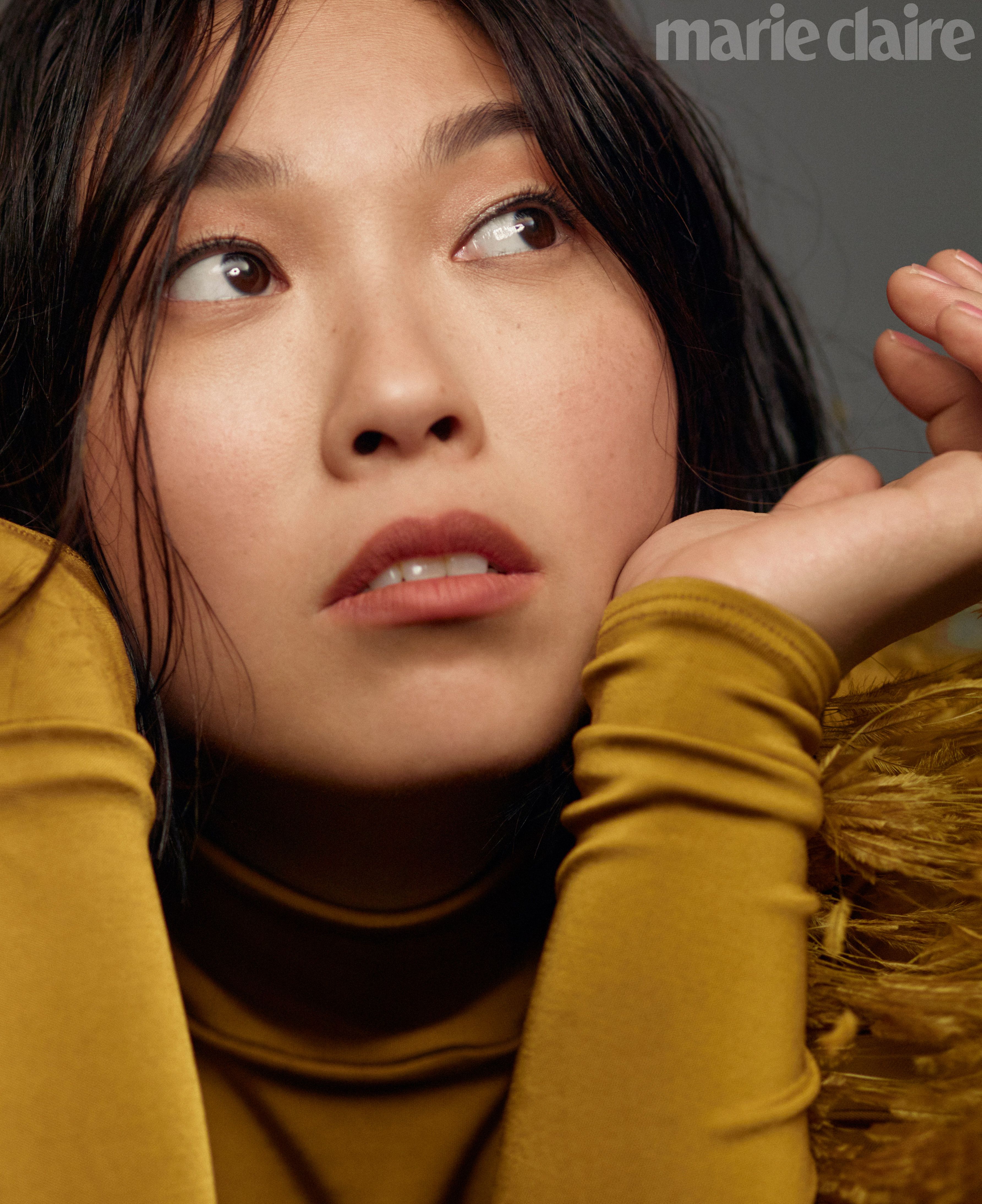
Proenza Schouler top.
“I don’t think I’ll ever be satisfied to the point of not being hungry,” Awkwafina explains. “I worry this is all a dream, that I won’t know what to do to keep it going. This career is always going to be a risk. It’s always going to be a ride”—a ride that produces “lots of anxiety, anxiety attacks, things like that.” Anxiety has been a constant in her life and is a burden she is confronting head-on. “I always worry. What I’m realizing now is my inability to be still in the moment of joy, instead of wondering how or why. You don’t want wariness to bury the moment. You want to be present.”
When Awkwafina was four, her mother died from pulmonary hypertension. She was raised by her father and grandmother and, for years, felt enveloped in a cloud of sadness. Her response was to embrace her natural cheekiness to give the people in her orbit permission to laugh. “I started watching Saturday Night Live and Mad TV at maybe six or seven. I remember going into school making my teachers crack up. I was really into audacious comedy.”
A born iconoclast, Awkwafina was never hobbled by decorum or traditional notions of femininity and compliance. “I was a tomboy. I climbed trees, was very rambunctious, like complete energy. Looking back, I would think of myself as a nightmare. At every fancy event, after coming out of the bathroom, my entire dress would be tucked into my pantyhose. I was messy.” As distinctive as her personality was Awkwafina’s razor rasp of a voice. “People are not going to believe this, but I have sounded this way since I was a toddler. If I asked for juice, it would be like”—she drops to a low baritone—“juuuuuiice. I would pick up the phone as a kid, and people didn’t know if they were speaking to the man of the house. My voice is so freaking weird. I never sounded right.”
Stay In The Know
Get exclusive access to fashion and beauty trends, hot-off-the-press celebrity news, and more.
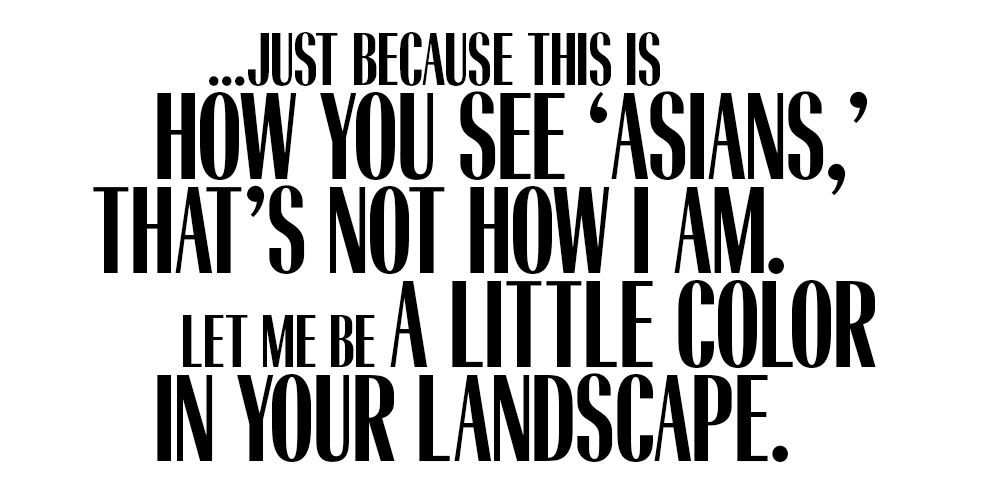
Awkwafina uses her singular voice to her advantage. “When I got my driver’s license, men would try to cut me off or do the ‘Asian driving’ bit, that whole thing. I’d roll down the window and start going in on them, just screaming, really hard-core aggro. And they would be shocked. Every single person, like, ‘Oh my God, I did not expect that.’”
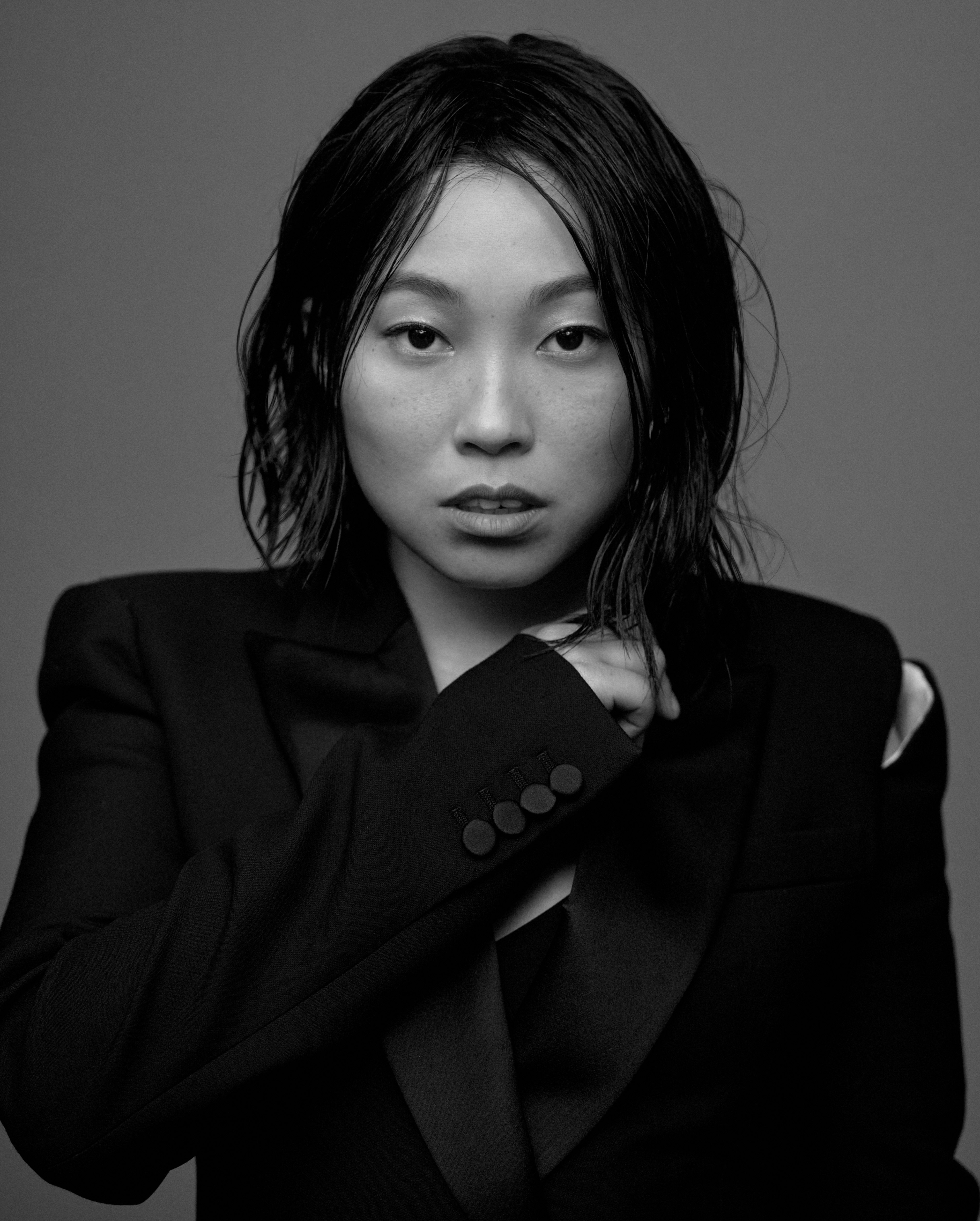
Givenchy jacket.
She has only continued subverting expectations, instinctively mining her captivating eccentricity and fearlessly blasting through barriers with every professional move she makes. “It’s going to be hard to not walk into the room as an Asian American woman and not surprise someone with my bawdiness or the way that I yell. It proves a larger point that we’re all different and come from different experiences, and just because this is how you see ‘Asians,’ that’s not how I am. Let me be a little color in your landscape.”
Does she feel like the future of entertainment? Awkwafina groans. “Imagine if you woke up and you were like, ‘I’m the future of entertainment.’ It sounds crazy.” Still, she understands the unique position she inhabits and the power that comes with breaking molds and redefining what women’s stories can be. She is heartened by her industry’s reception to narratives like hers: specific, necessary, and, until recently, largely ignored. “A lot of other Asian American actors tell me their experiences have not been the same as mine. For the older generations, it’s not fair to ask why they chose a role that wasn’t culturally accurate or was culturally mocking. It’s more fair to ask why that was the only thing available for them to choose.”
She is cautiously optimistic about the changes already in motion. “Oh, man, we’ve had some dents, but this generation is forward-thinking. We’re passionate. We’re on a progressive track. There’s nowhere to go but up, you know what I mean?”
As for her personal future, Awkwafina says, “I’m wanting to love myself more, not feel insecure about things that I can’t change, come to terms with who I am. It’s a learning process.” She wishes she had more discipline. A longer attention span. “I have these apps for two-minute workouts, and I can’t even keep it going.” She wishes she’d stop eating late at night in bed. That she cared about breakfast more. But for the most part, she’s reached a hard-earned equilibrium. “In my early 20s, I saw all my friends getting these sick jobs, and I was like, ‘Dude, I want to do that!’ But I wasn’t qualified for anything.” Awkwafina worked at a law library and a video store. “I thought I would be like a claims adjuster, you know? Or just, like, Sharon from HR,” she jokes. “I was always looking for something that would fulfill me the slightest bit.”
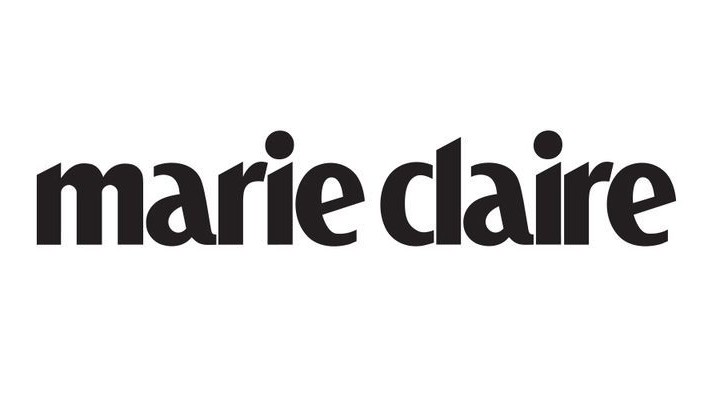
Awkwafina says she has at last found her calling. “This career really, truly feels like what I’m supposed to be doing.” She pauses a rare beat. “My grandma told me life is always going to shift.” It’s wisdom Awkwafina carries with her every day. “Her advice has helped me when I’m depressed or even really happy. Just knowing that all states are temporary.” Her grandma told her something else recently. “Before, she didn’t know what was going to happen to me. She was worried about leaving me. But now she’s very much at peace.” Awkwafina sighs, emotion filling her voice like water. “Obviously I don’t want her to leave, but her saying, ‘I’m not worried,’ that meant a lot.”
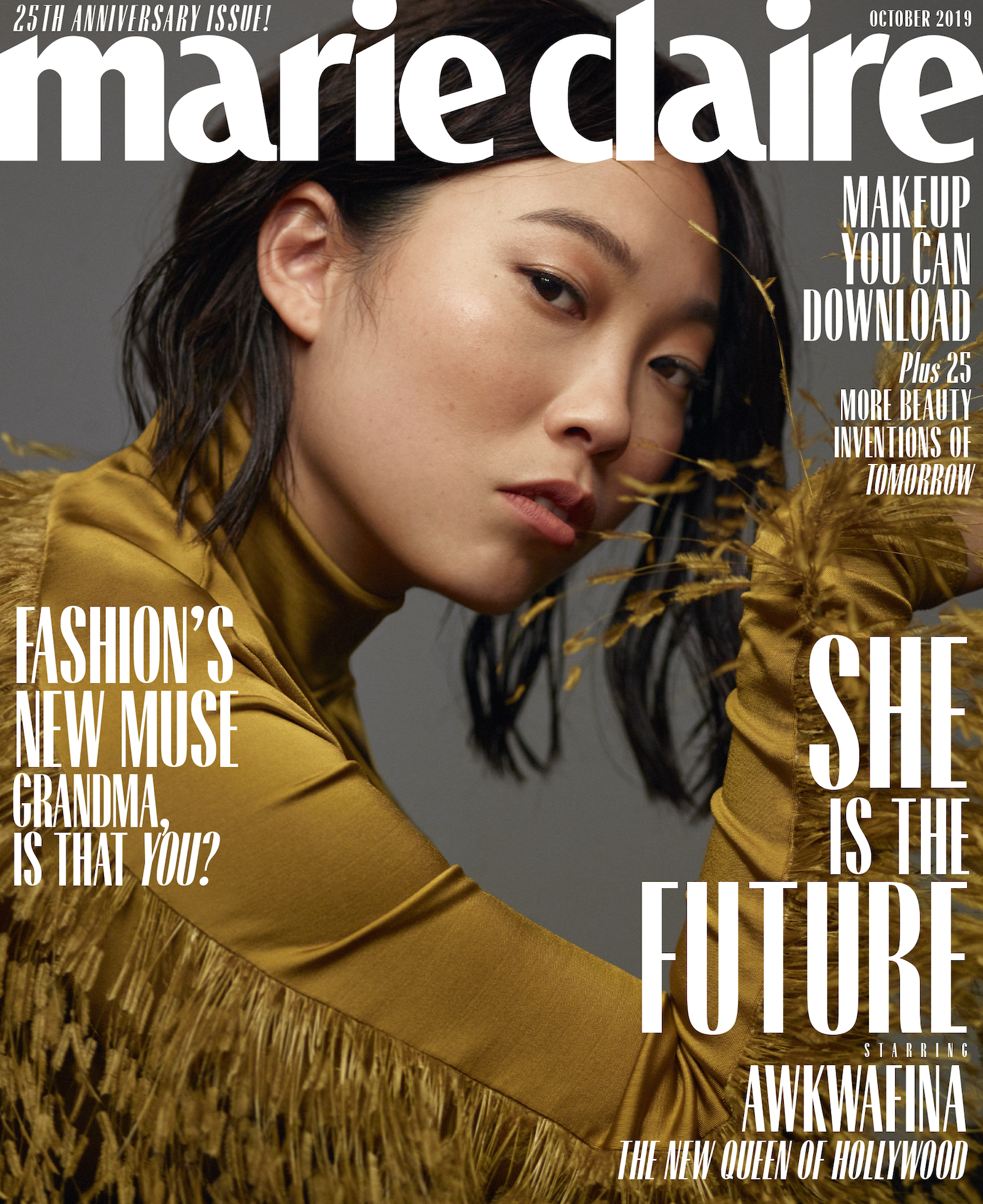
Proenza Schouler top.


This article originally appears in the October 2019 issue of Marie Claire. Read more about the women changing the future, in honor of our 25th anniversary, here.
Photographer: Thomas Whiteside / Fashion Editor: Ryan Young / Hair: Bok-Hee at Forward Artists for Oribe / Makeup: Yumi Mori at Forward Artists for Chanel / Manicure: Dawn Sterling at Statement Artists for Dior / Production: Elise Connett at 143 Productions
-
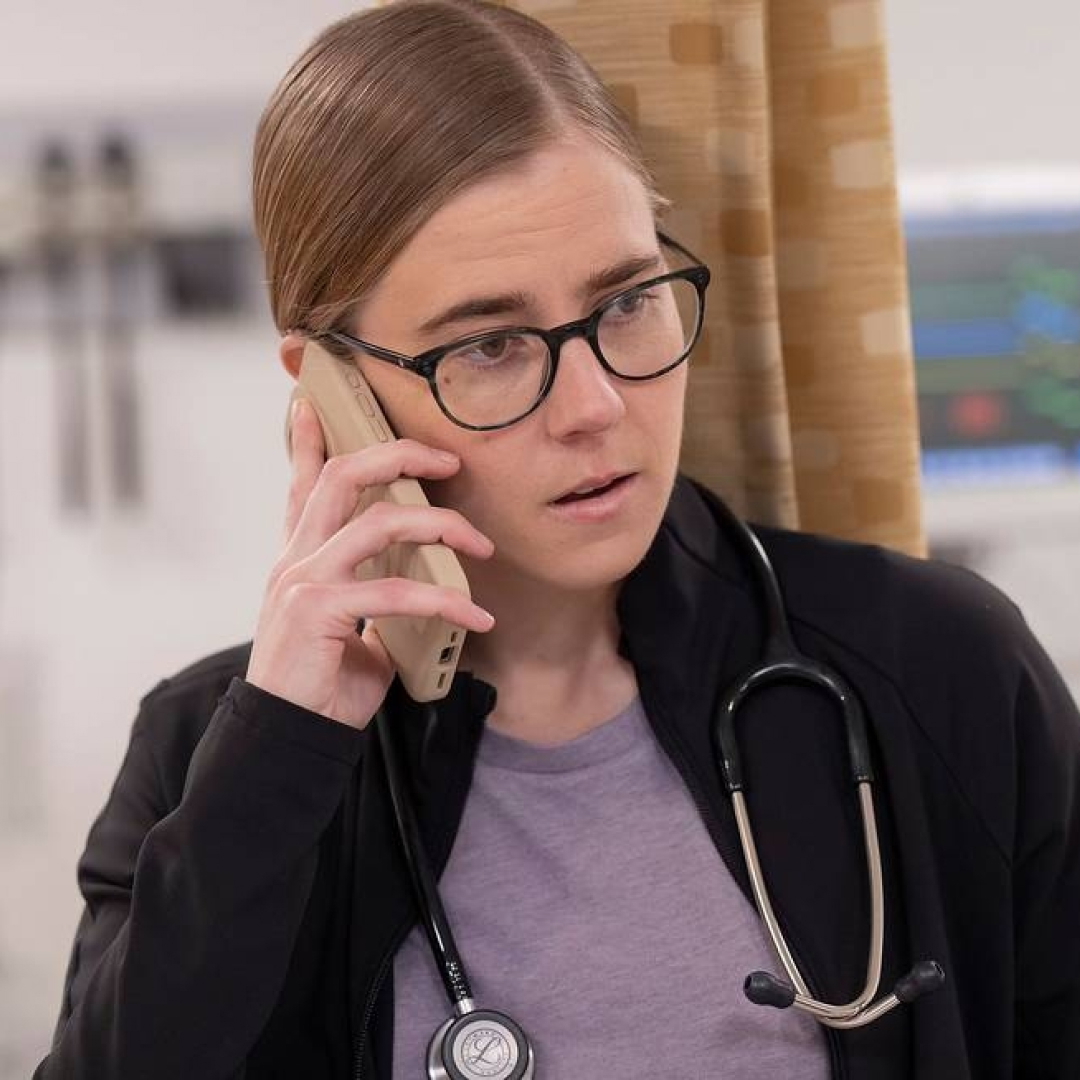 'The Pitt' Star Taylor Dearden Says She Sees Her and Dr. Mel's Neurodivergence as "a Superpower"
'The Pitt' Star Taylor Dearden Says She Sees Her and Dr. Mel's Neurodivergence as "a Superpower"Here's what to know about the Max series's breakout star, who just so happens to come from TV royalty.
By Quinci LeGardye Published
-
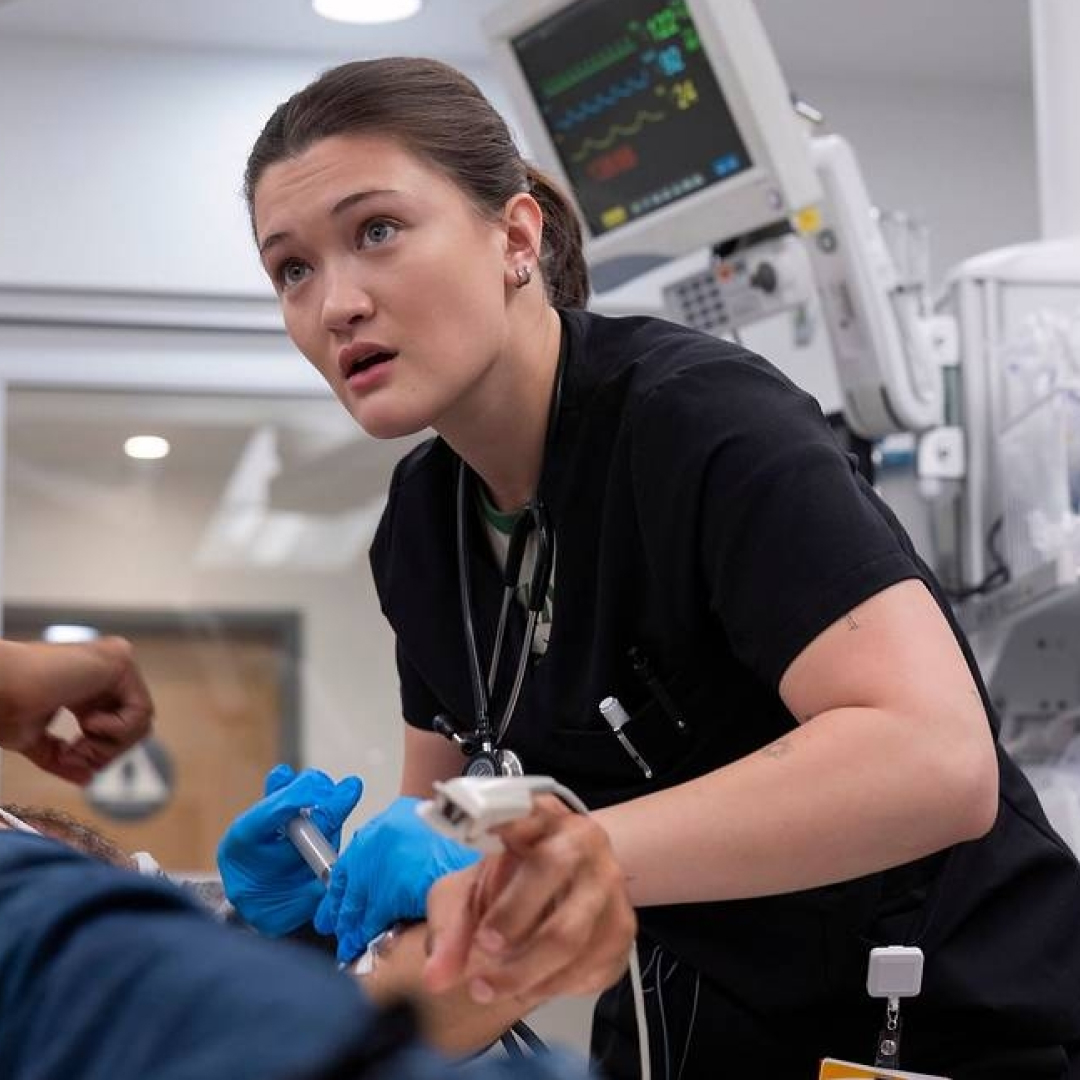 We Owe Trinity Santos From 'The Pitt' an Apology
We Owe Trinity Santos From 'The Pitt' an ApologyThe season finale of the smash Max series proved that the most unlikable character on TV may just be the hero we all need.
By Jessica Toomer Published
-
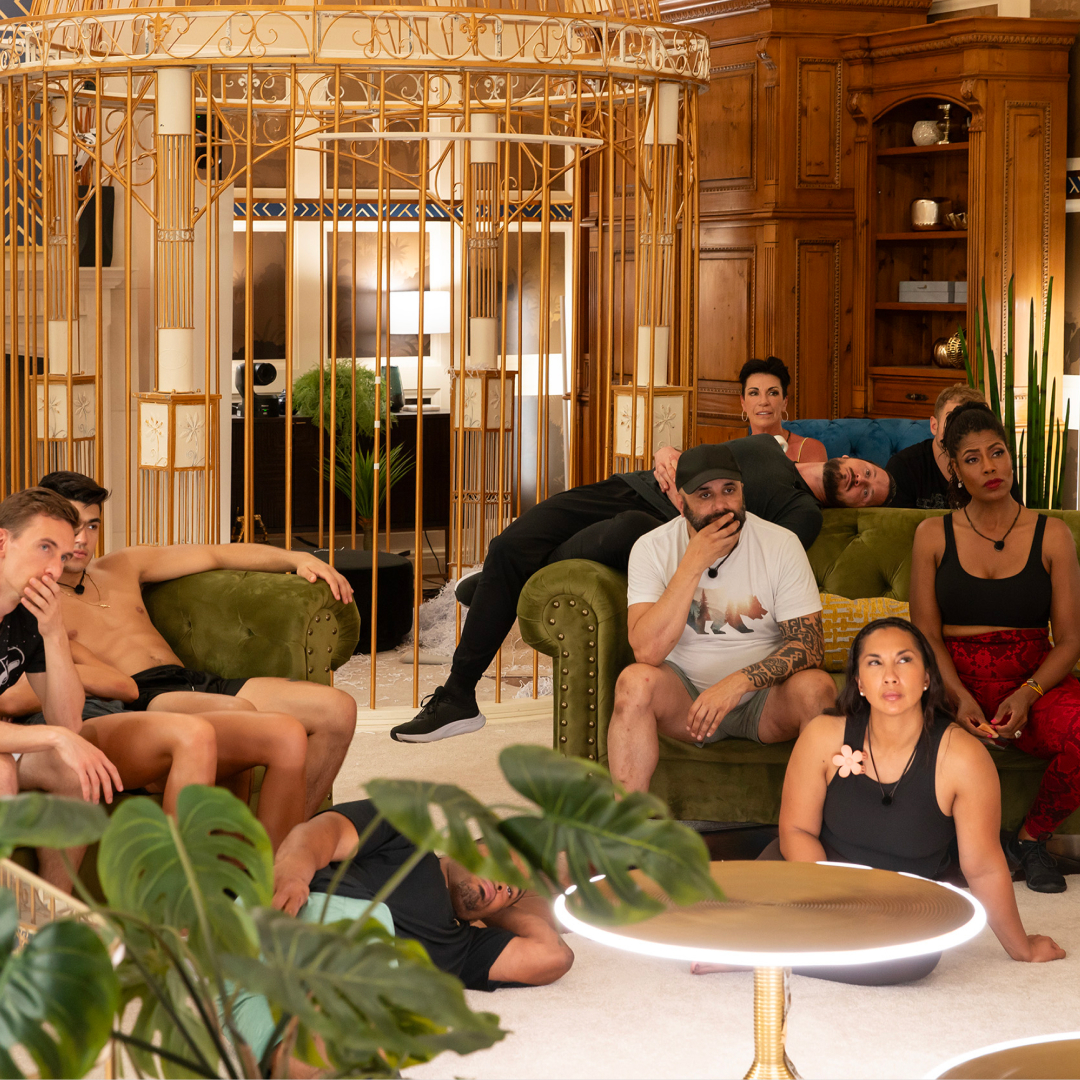 Your Guide to the Cast of 'Got to Get Out,' Which Pits Reality TV Alums Against Each Other for a Chance at $1 Million
Your Guide to the Cast of 'Got to Get Out,' Which Pits Reality TV Alums Against Each Other for a Chance at $1 MillionHulu's answer to 'The Traitors' is here.
By Quinci LeGardye Published
-
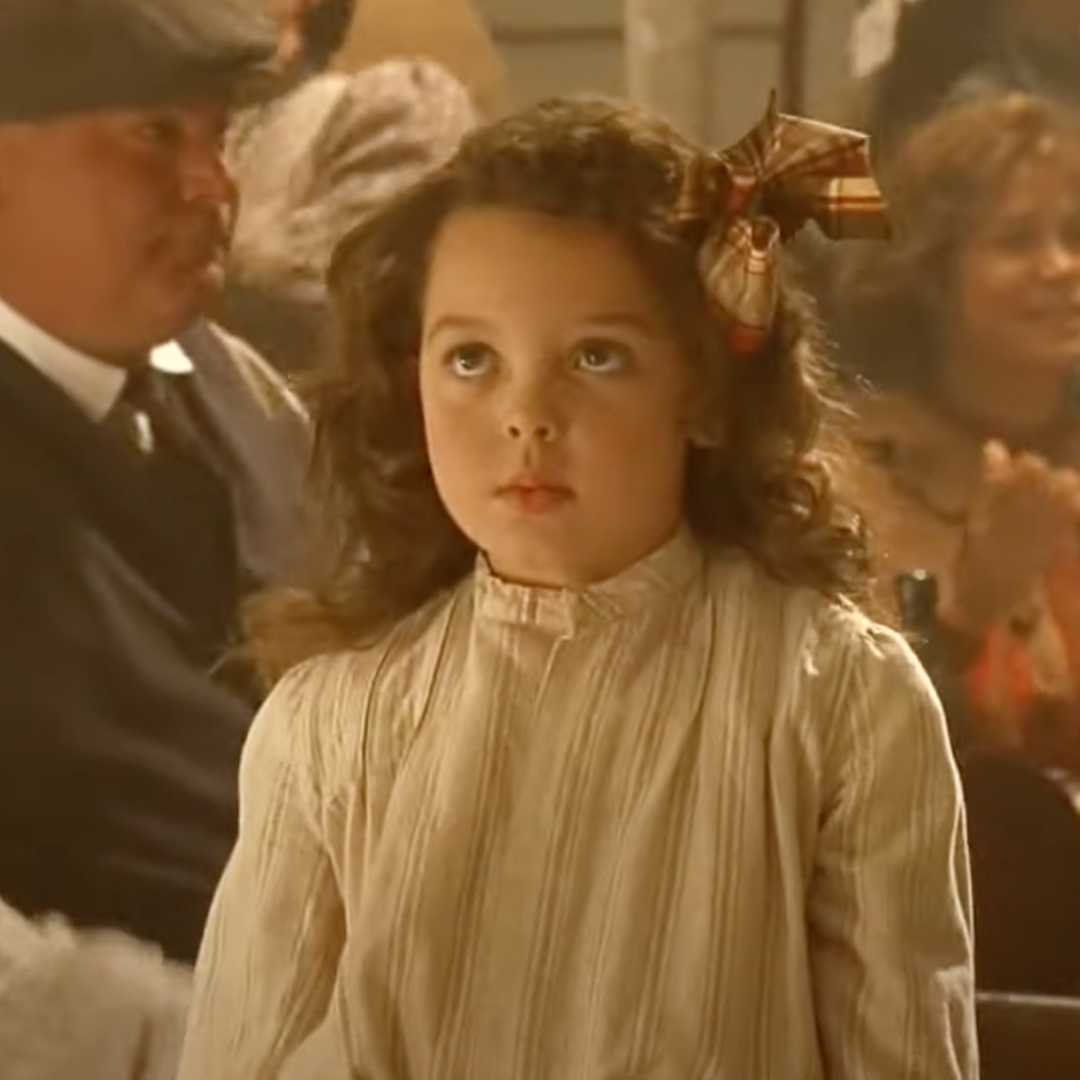 A 'Titanic' Child Star Says a Devastating Scene Was Cut: "Heavily Rejected by Moms"
A 'Titanic' Child Star Says a Devastating Scene Was Cut: "Heavily Rejected by Moms"\201cYou're still my best girl, Cora.\201d
By Lia Beck Published
-
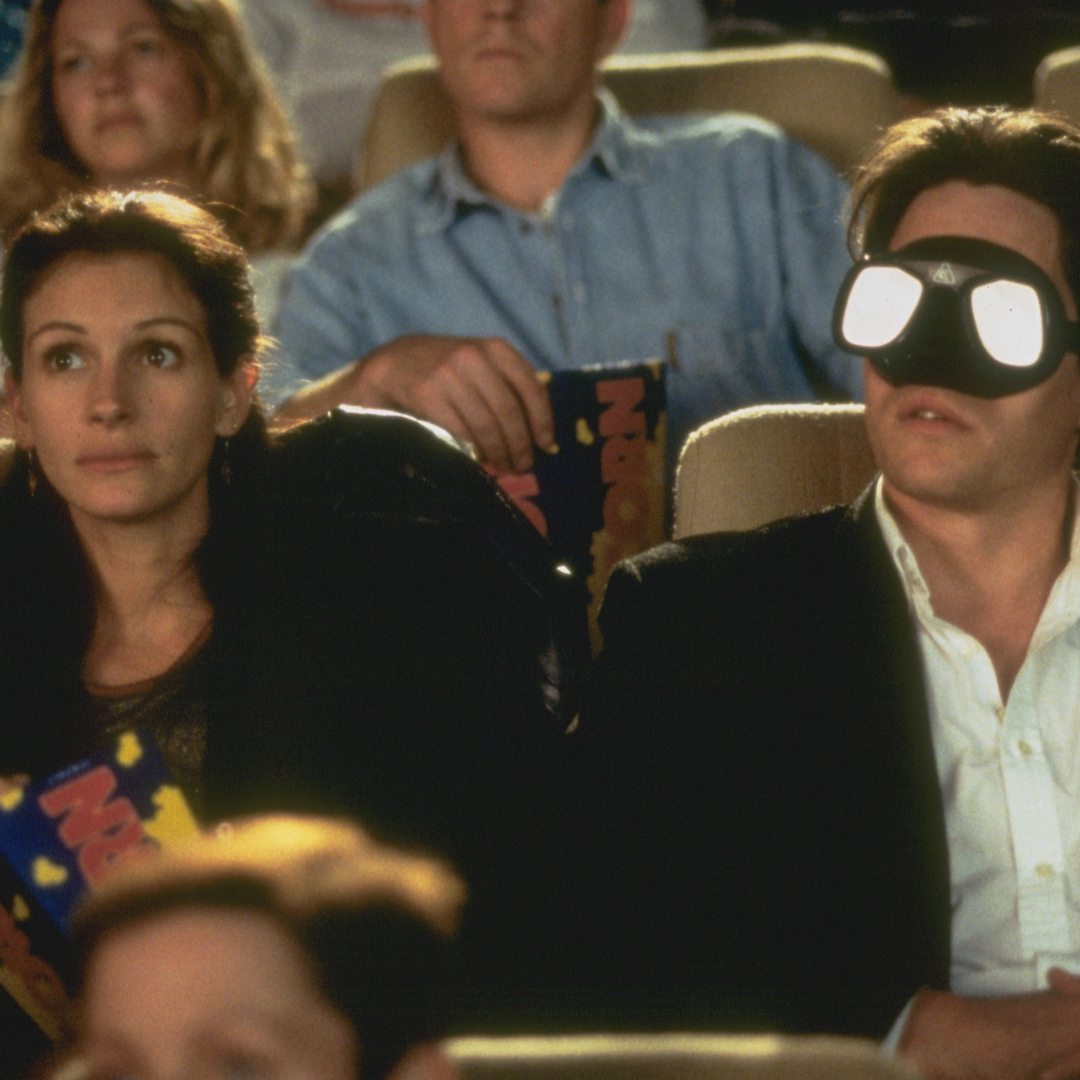 Julia Roberts Turned Down a 'Notting Hill' Sequel, Calling It a "Very Poor Idea"
Julia Roberts Turned Down a 'Notting Hill' Sequel, Calling It a "Very Poor Idea"Hugh Grant is ready to destroy the movie's happy ending, though.
By Amy Mackelden Published
-
 Eva Mendes and Ryan Gosling Introduce the "Newest Member" of Their Family
Eva Mendes and Ryan Gosling Introduce the "Newest Member" of Their Family"I'm crazy about her and excited to share life."
By Amy Mackelden Published
-
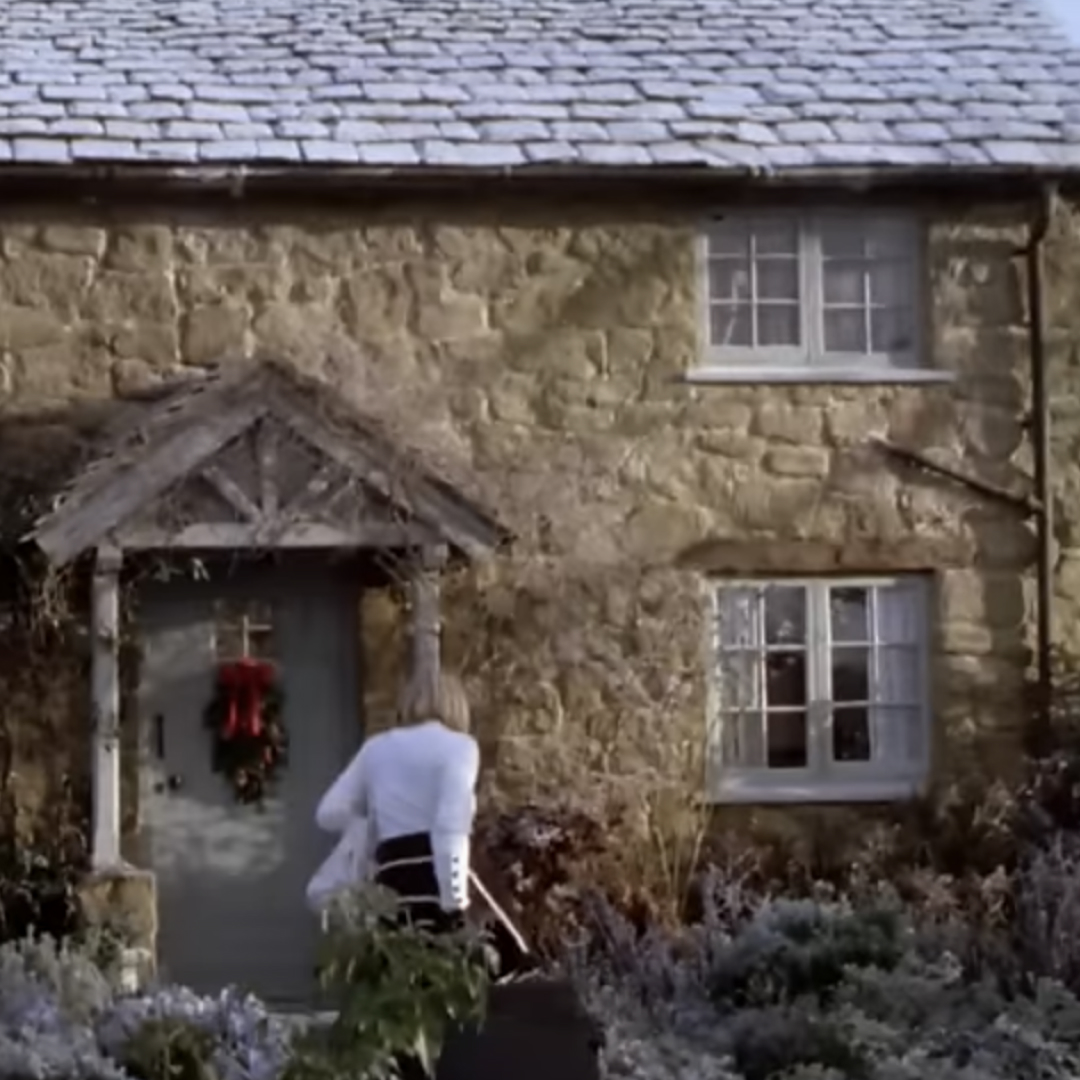 Jude Law Devastates 'The Holiday' Fans by Revealing a Secret About the Film's Idyllic English Cottage
Jude Law Devastates 'The Holiday' Fans by Revealing a Secret About the Film's Idyllic English Cottage"Just burst the bubble. Sorry!"
By Amy Mackelden Published
-
 Jennifer Garner Is Reportedly Ready to Cut Ties With Jennifer Lopez, Unless Their Kids Are Involved
Jennifer Garner Is Reportedly Ready to Cut Ties With Jennifer Lopez, Unless Their Kids Are Involved"Her friends feel she shouldn't have allowed herself to get so involved."
By Amy Mackelden Published
-
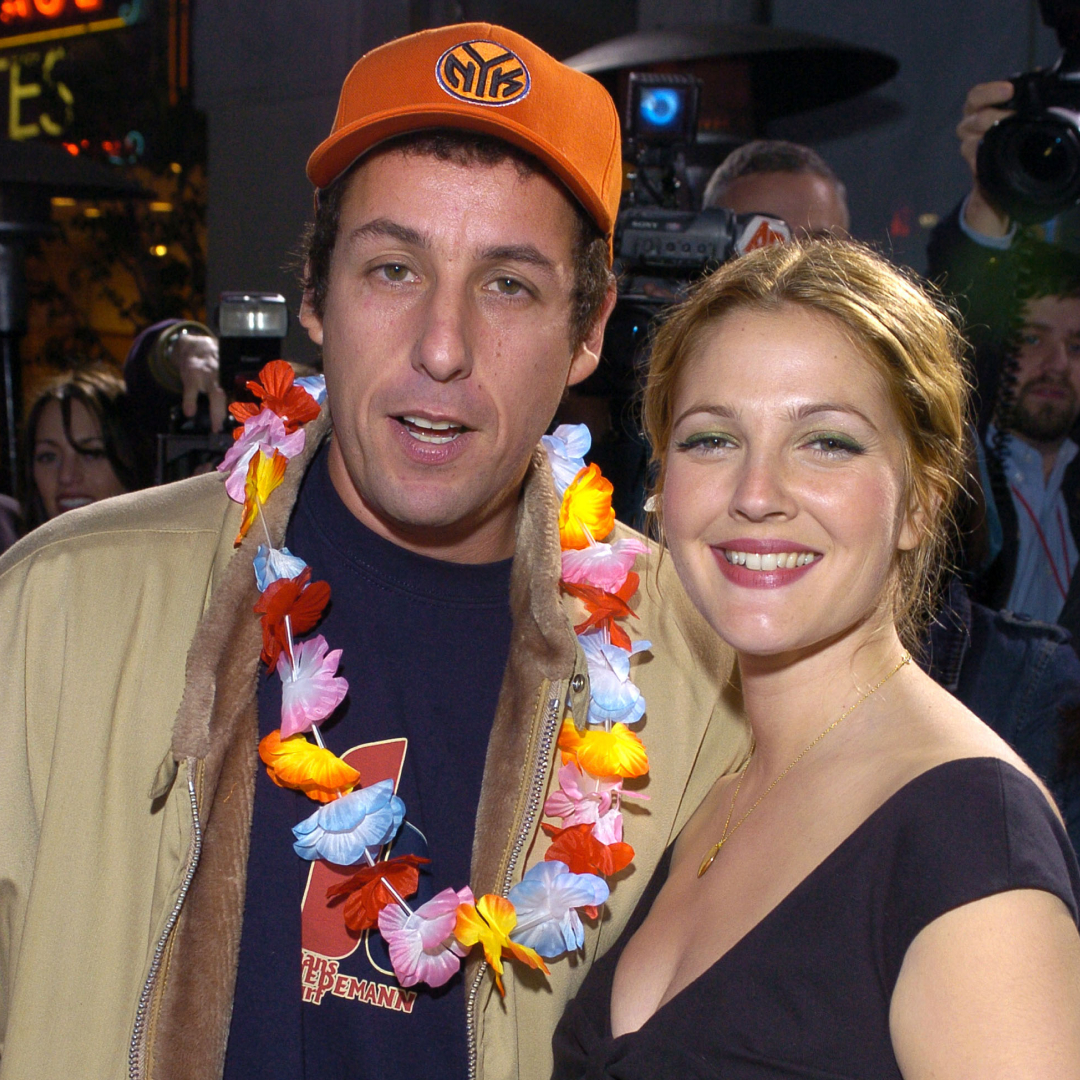 Drew Barrymore Discovered Her Daughter Watching '50 First Dates' with Adam Sandler's Daughter
Drew Barrymore Discovered Her Daughter Watching '50 First Dates' with Adam Sandler's Daughter"They were just so happy and I was like, 'Oh, but this is so sweet and wonderful.'"
By Amy Mackelden Published
-
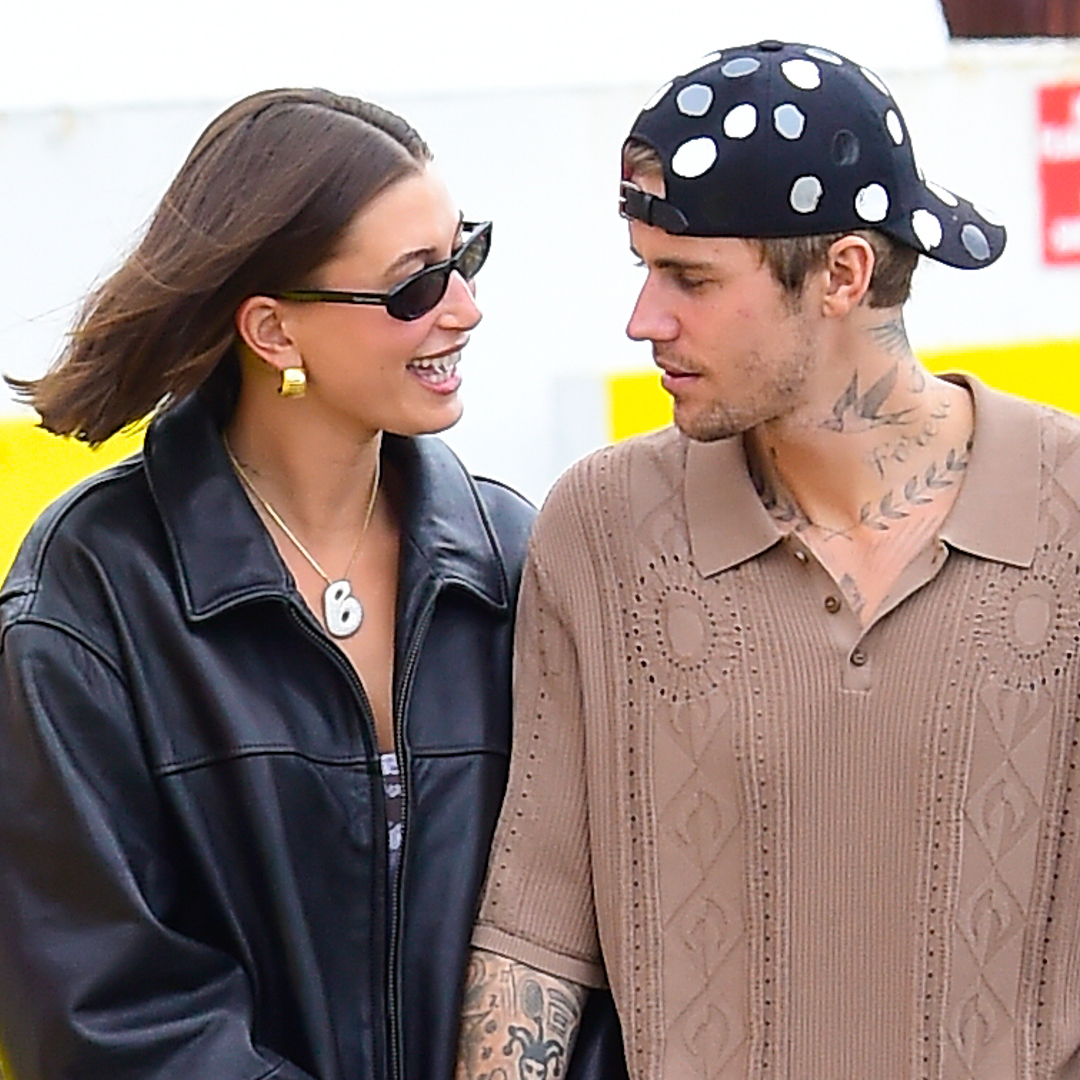 Hailey Bieber Shares Her First Photo of Baby Son Jack Blues Since Giving Birth—See the Sweet Shot
Hailey Bieber Shares Her First Photo of Baby Son Jack Blues Since Giving Birth—See the Sweet ShotSo freaking cute.
By Quinci LeGardye Published
-
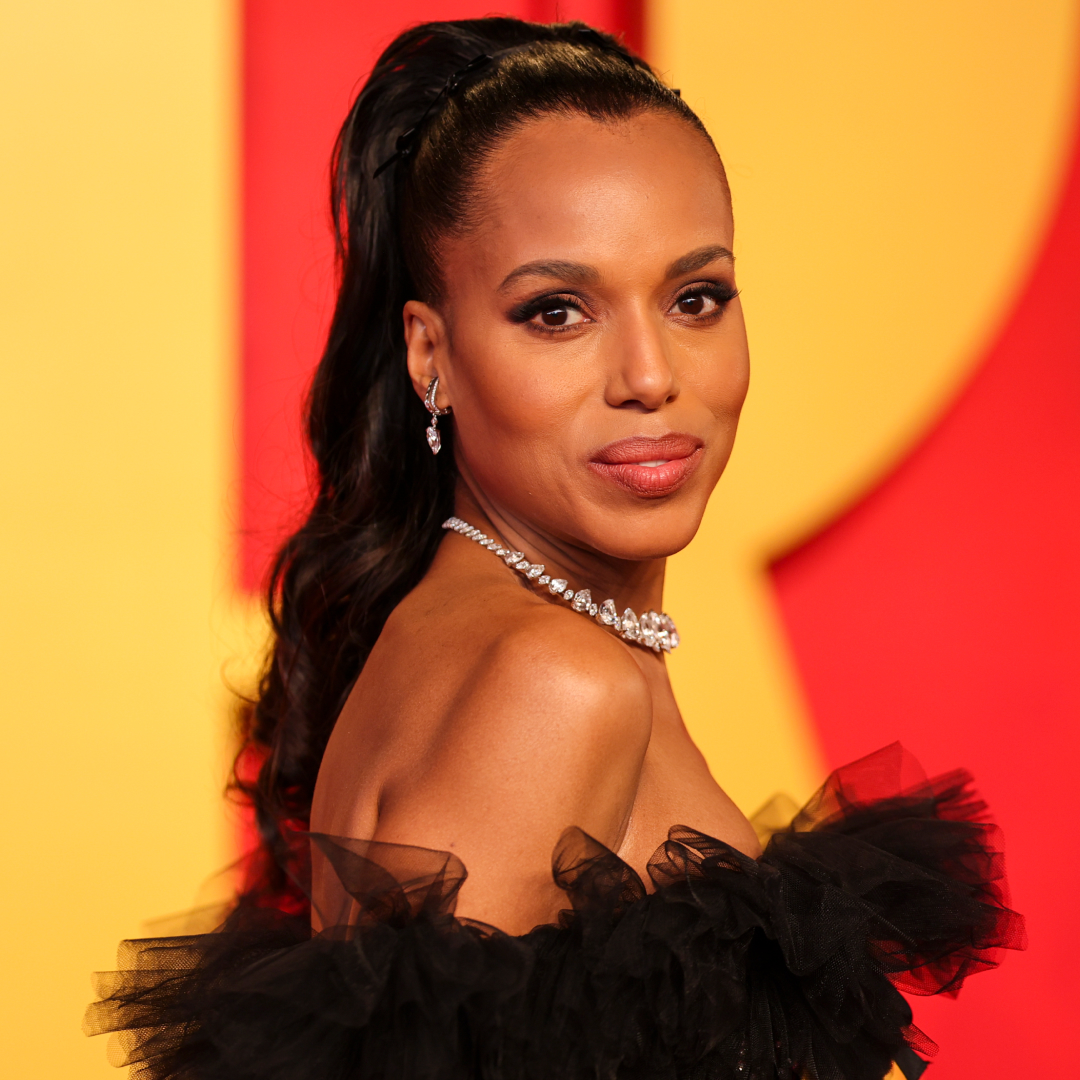 Actors Who Are Nothing Like Their Most Iconic Characters
Actors Who Are Nothing Like Their Most Iconic CharactersTalk about awards-worthy, transformative performances.
By Katherine J. Igoe Published